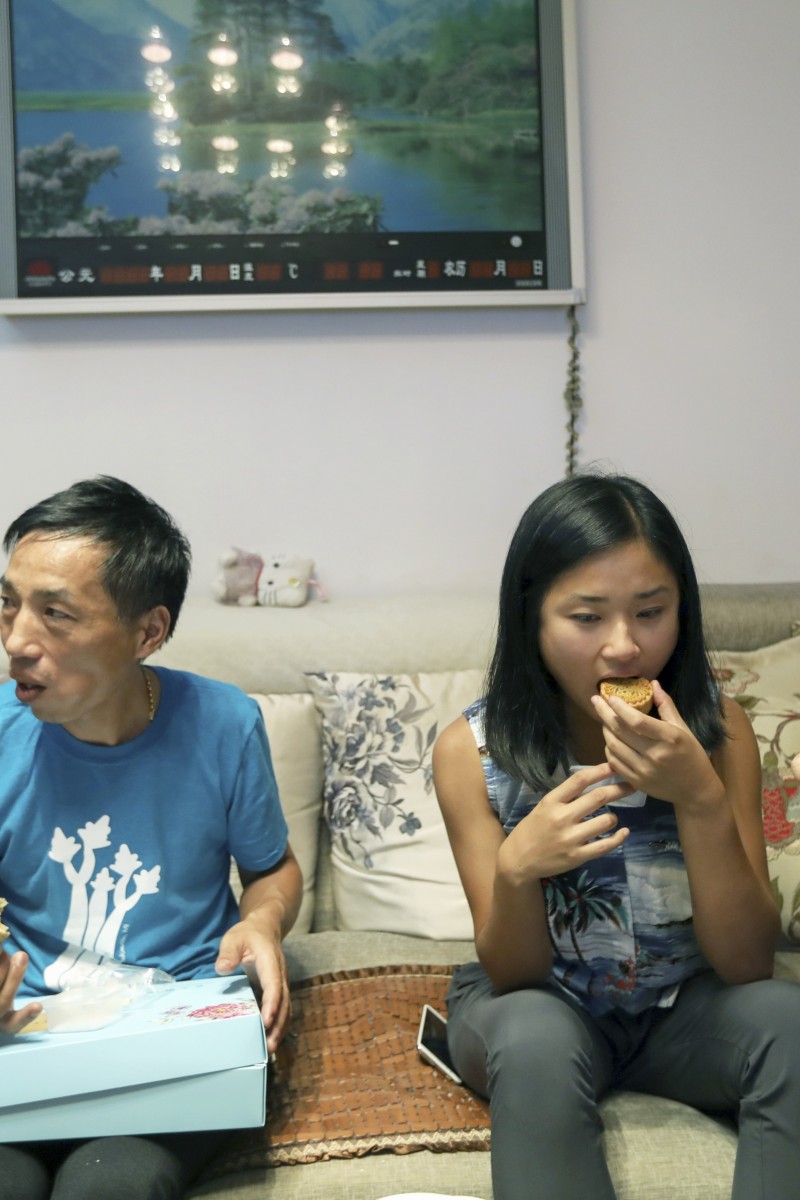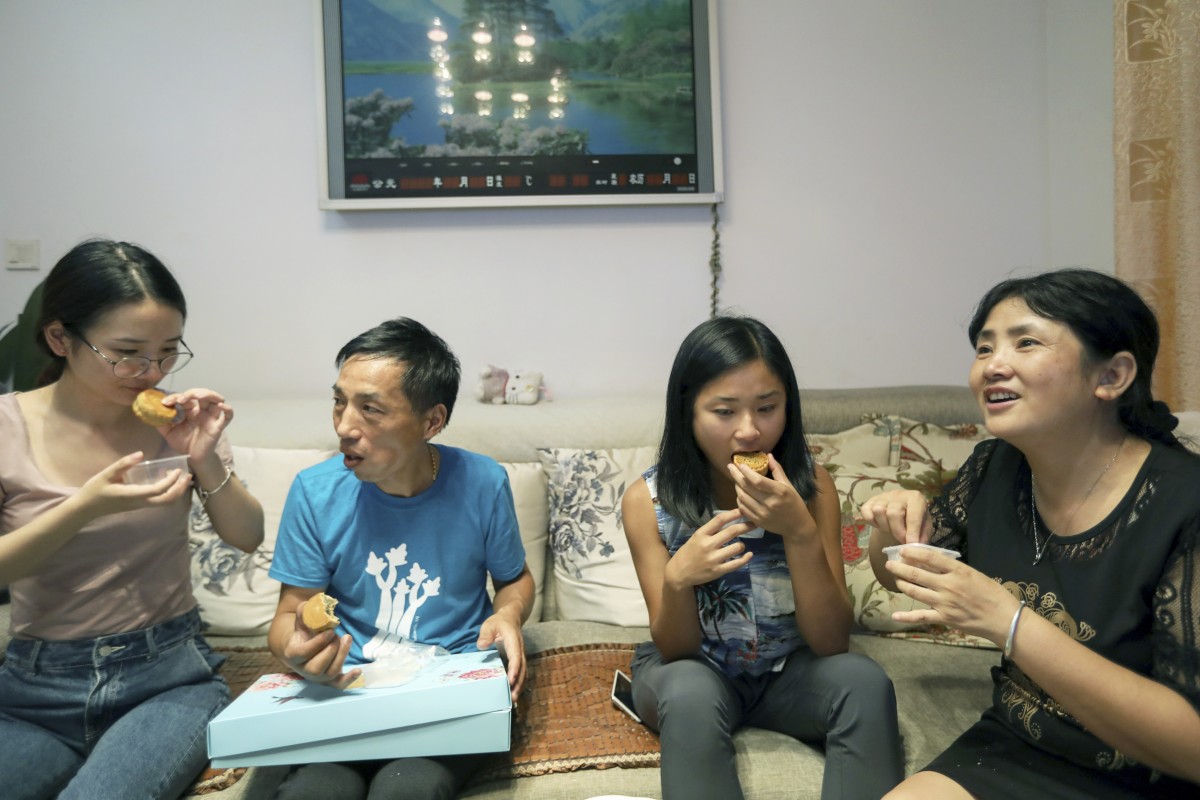
Children adopted by overseas family reuniting with birth family isn't really news-worthy
 Xu Xiaochen, Xu Lida, Kati Pohler and Qian Fengxiang. Kati Pohler spent Mid-Autumn Festival with her birth family, father Xu Lida, mother Qian Fengxiang, older sister Xu Xiaochen, for the first time in Hangzhou city, east China.
Xu Xiaochen, Xu Lida, Kati Pohler and Qian Fengxiang. Kati Pohler spent Mid-Autumn Festival with her birth family, father Xu Lida, mother Qian Fengxiang, older sister Xu Xiaochen, for the first time in Hangzhou city, east China.I am writing in response to the article, “One year on: adopted girl, reunited with birth parents on a Hangzhou bridge, returns to China to teach English, learn about herself” (SCMP, October 26, 2018).
The story is about a girl named Kati, who was living with her adoptive parents in the US state of Michigan. She met her mainland birth parents and older sister for the first time in 2017.
This kind of story is not actually “news” any more, because it is so common, thanks mainly to the internet. But I am very happy for Kati and hopes she has a wonderful time on the mainland.
According to the article, there are more than 80,000 adopted mainland children in America.
I saw a similar story a few weeks ago about a mainland man adopted by US parents seeking help from the media to find his birth parents. Within a week, it was revealed on TV that they had been found. I watched the show and the woman admitted that she had abandoned her son 28 years ago.
Although having the internet is a big advantage, there are also drawbacks. We have to protect our personal information at all cost.
Pako Chan, King Ling College
Outsourcing pregnancy and limits on free markets
From the Editor
Thank you for your letter, Pako. Today’s information sciences are absolutely amazing. All sorts of people can be traced online. As the saying goes, “once you post something online, it’s out there forever”.
In the past, women who gave up their children for adoption could not be contacted or traced. This was because often they had not told anyone about their child. Girls who became pregnant out of wedlock would be greatly shamed and their futures ruined if society knew they had had a child.
Also, giving away a child is a tough choice and people can leap to all sorts of unkind judgments about the birth mother.
Today, many adoption agencies allow mothers to indicate whether they wish to be found. In societies where women have the ability to provide for themselves, it is often not such a big deal if they have a child without being married.
But, in some societies, revealing the presence of a child could cause the woman to lose her husband and be left destitute.
The thorny question then is: Just because we can find the mother, should we? We’ll be interested to hear what our readers have to say.
Susan, Editor